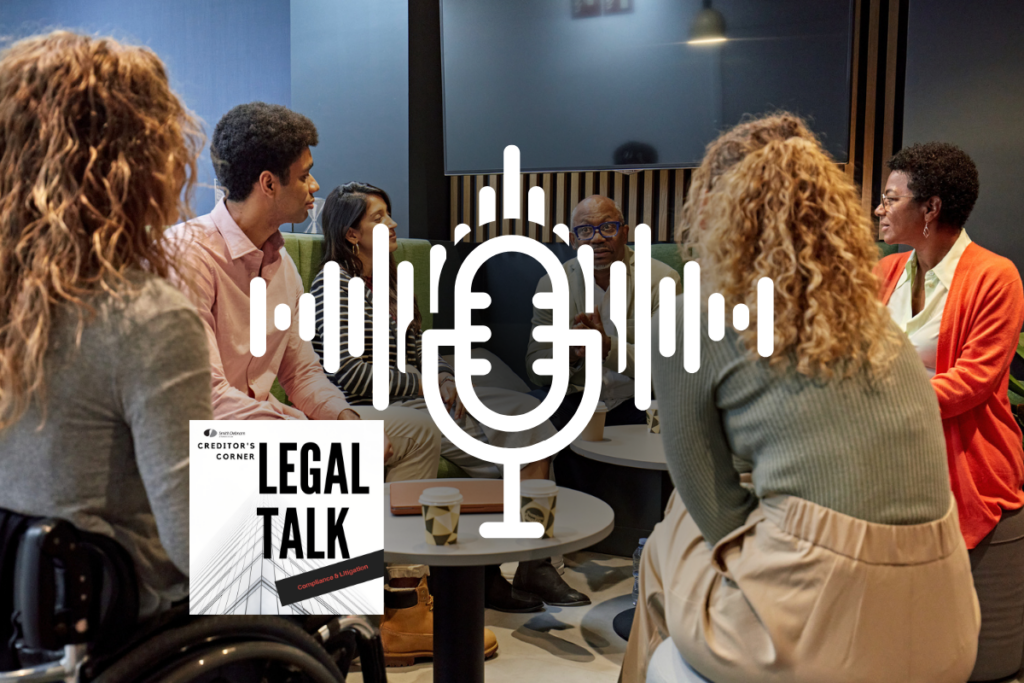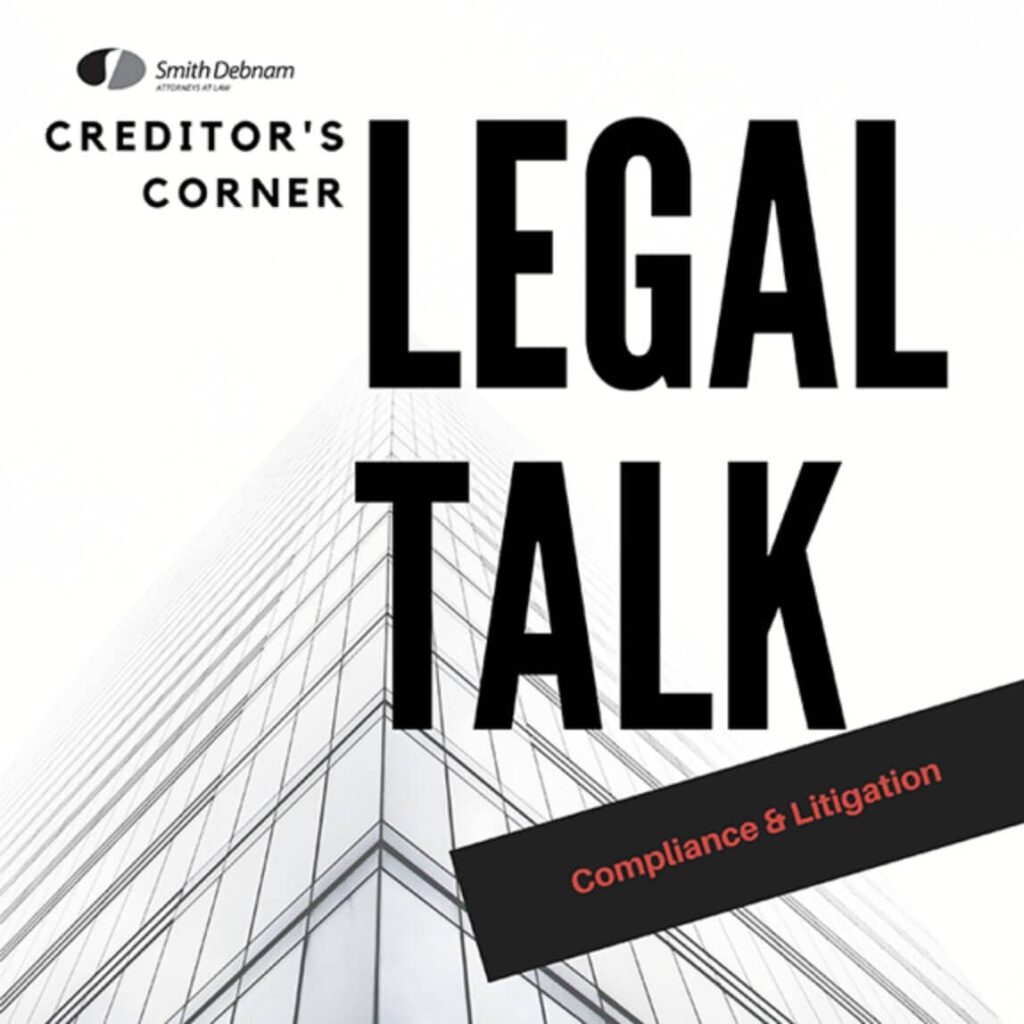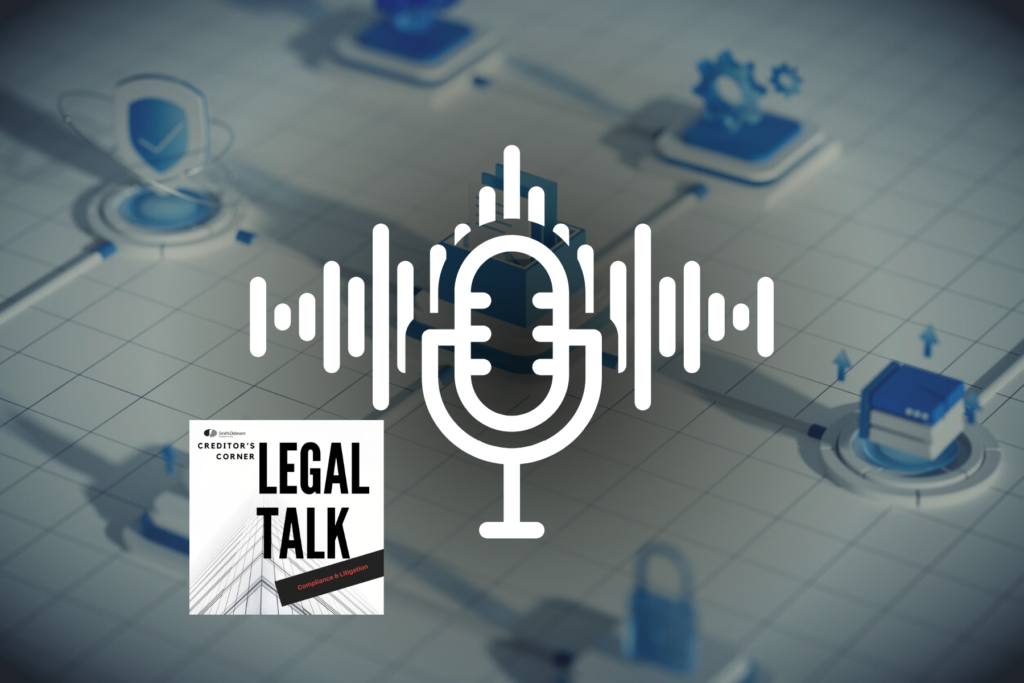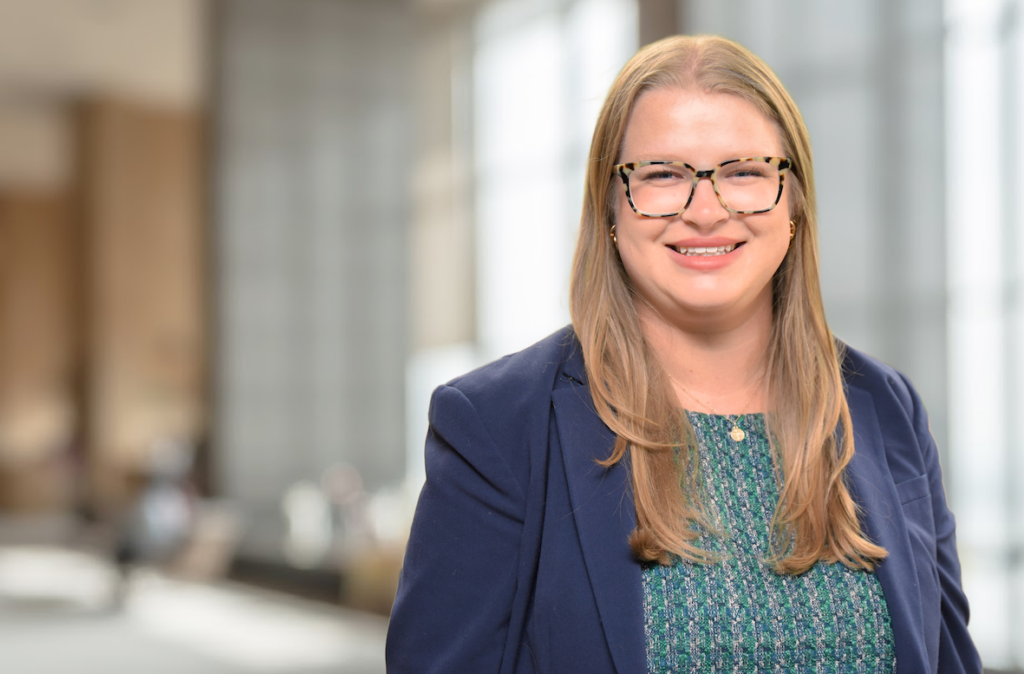Melissa Tulis Smith and Rachel Rogers discuss the importance of diversity, equity, and inclusion (DEI) in the banking and financial sectors. They explain that DEI involves creating a workplace where diverse individuals are represented, treated fairly, and valued. DEI is crucial for banks because it helps them better understand and serve their diverse customer base, fosters innovation, and enhances decision-making. Effective DEI practices can improve regulatory compliance, attract top talent, and reduce turnover costs. They emphasize the need for inclusive hiring, training, and promotion processes, and highlight that DEI initiatives can enhance customer service, client relationships, and overall business success.


The Importance of Diversity, Equity, and Inclusion in the Banking and Financial Sectors
[00:00] Melissa Tulis Smith: Hello and welcome to the podcast series Creditors Corner Legal Talk, presented by Smith Debnam Attorneys at Law, where we explore a range of legal topics impacting businesses and private individuals.
[00:30] So be sure to hit subscribe so you never miss an episode.
[00:34] My name is Melissa Tulis Smith and I’m an attorney in the firm’s Creditors Rights Section. I’ll be your moderator today.
[00:44] Today’s topic is why DEI, or Diversity, Equity and Inclusion is important for banks and other creditors, and we’ll talk about diversity, equity and inclusion in the banking and financial industry.
[00:58] Why is it crucial and how is it transforming the way banks and financial institutions operate?
[01:05] Before we begin, I want to note the information provided in this podcast is not and is not intended to constitute legal advice.
[01:14] Instead, any and all information shared is for general informational purposes only.
[01:19] Listeners should contact their attorney to obtain advice with respect to any particular legal matter.
[01:25] With that out of the way now, let’s turn our attention to today’s topic.
[01:30] With us today is Rachel Rogers, an attorney in the firm’s Creditors Rights Section and Chair of the DEI Committee here at Smith Debnam.
[01:40] Rachel Rogers: Hey Melissa, good to be here.
[01:43] Melissa Tulis Smith: Thanks for being here today, Rachel. Let’s go ahead and kick off our discussion today.
[01:49] DEI has become such a buzzword in many industries, but for banking and finance, it’s not just a trend, it’s a game changer. First off, Rachel, what is your personal definition of diversity?
[02:02] Equity inclusion, otherwise known as DEI.
[02:06] Rachel Rogers: Thanks, Melissa. DEI is a framework that seeks to create a workplace and a society where diverse individuals are represented, treated fairly and valued.
[02:20] Breaking it down into each word, Diversity refers to the presence of differences within a given setting, including various categories that can be race, gender, age, sexual orientation, disability, and many more.
[02:35] In the banking industry specifically, this means having a workforce that reflects the demographics of the customer base and the community that the bank serves.
[02:45] Equity involves ensuring the fair treatment, access and opportunities for all individuals, while also striving to identify and eliminate barriers that have historically caused disadvantages.
[02:59] This could mean ensuring that all employees have the resources and support that they need to succeed.
[03:06] Lastly, inclusion is about creating an environment where everyone feels welcomed, respected and they feel valued. In banking, this translates to a culture where diverse voices are heard and considered in decision making processes and where all employees feel like they belong and can contribute to their fullest potential.
[03:30] Melissa Tulis Smith: Thanks for that, Rachel. And I know we definitely think about some of those factors on the DEI Committee here at Smith Debnam, but can you elaborate a little bit on why DEI is particularly important in the banking sector?
[03:44] Compared to other industries?
[03:47] Rachel Rogers: Absolutely. There are many, many reasons, but I’ll touch on a few today.
[03:53] One that I briefly already mentioned is that banks have a wide range of customers, and they serve a broad customer base. And so having a diverse workforce helps banks better understand and meet the needs of their customers and can help with increase increasing their customer satisfaction.
[04:13] When you look internally, diverse teams working at a bank bring different perspectives and experience to the table which can help foster innovation and help problem solve. This is really valuable in the banking sector because there are new technologies and approaches to banking are constantly emerging and evolving and so having that diverse team can be really helpful.
[04:43] Specifically, equity and inclusion in the workplace help lead to more well balanced and well-rounded decision making.
[04:52] Again, back to the diverse teams. When there’s different viewpoints that are considered when making decisions, those decisions are more likely to be comprehensive and effective, which is paramount to the banking industry.
[05:08] The regulatory compliance and reputation also goes hand in hand with DEI. As we know, banks are increasingly held accountable for their DEI practices by regulators, investors and the public.
[05:24] Effective DEI strategies can enhance a bank’s reputation, and it can help in meeting regulatory requirements.
[05:35] Obviously, banks and other businesses alike want to attract top talent and retain those individuals as employees.
[05:45] And it’s clear that a commitment to DEI makes banks more attractive to the top talent.
[05:52] A diverse and inclusive environment can improve employee satisfaction and retention, which overall reduces turnover and the associated costs that come with turnover.
[06:04] And the last little bit I’ll speak on regarding this topic, specifically with banks is risk management.
[06:13] Having inclusive practices really helps identify and mitigate potential risks that are related to discrimination and bias.
[06:21] This can prevent legal issues and ensure compliance with anti-discrimination laws. If your bank already has DEI practices in place that they’re aware of and tracking.
[06:32] So incorporating DEI into banking isn’t just about meeting social expectations, but it’s a strategic advantage that can drive business success and sustainability.
[06:46] Melissa Tulis Smith: Can you share some specific ways in which DEI initiatives can enhance the overall performance, performance and reputation of a bank?
[06:55] Rachel Rogers: Yeah, of course. These will be some ideas that are more like action items that can actually be put in place versus these broad ideas. And I’ll just point out a few that could be helpful.
[07:11] As I mentioned earlier, by reflecting the diversity of the customer base, banks can attract a wider range of clients, including those from underserved or minority communities.
[07:24] And so having DEI initiatives can lead to better financial performance, which is key for these businesses.
[07:31] Research has shown that companies with diverse teams are often more profitable. The ability to connect with a broader customer base and innovate more effectively can help drive that financial success.
[07:44] It also can enhance a bank’s competitiveness by differentiating it from its competitors. And of course, it appeals to socially conscious investors and customers when customers are looking for a bank to do business with.
[08:00] DEI is something that many people are now looking towards.
[08:07] There are again also some legal and compliance benefits.
[08:12] Effective DEI practices help ensure the compliance when the anti-discrimination laws and that therefore reduces the risk of legal issues and those costs.
[08:24] By addressing DEI proactively, banks can demonstrate their commitment to fairness and equality, which therefore mitigates potential compliance challenges.
[08:36] By leveraging DEI initiatives, banks can foster a more dynamic, equitable and inclusive environment which then drives better performance and enhances their reputation and positions them for a long-term success.
[08:52] Melissa Tulis Smith: So, can you touch on how banks can ensure that these DEI practices are actually integrated into their hiring, their training and their promotion processes?
[09:06] Rachel Rogers: Yeah, I think that DEI really starts at the hiring level and ensuring that when employees are trained, they are knowledgeable and aware of the DEI practices.
[09:18] Hiring within a DEI program is really crucial to the long-term success of the DEI program.
[09:29] Some ways that this can happen is by developing inclusive job descriptions, making sure that there is a structured interview that uses diverse panels of interviewers to help minimize the individual biases.
[09:47] And it’s important to train the recruiters and the hiring managers on unconscious bias and making sure that they’re aware that they have those unconscious biases and acknowledging that and training those managers will assist in helping to minimize those biases during the interview process.
[10:09] Again, once hired to have It’s a great idea to have a mandatory DEI training program.
[10:16] This helps promote continuous learning and helps create an inclusive learning environment by ensuring that training materials and resources are accessible to everyone.
[10:28] If everyone is having to take a mandatory DEI program, then that just helps foster that environment and ensures that everyone is getting the same information and on the same level of understanding as what DEI means to the company.
[10:45] Another way to integrate DEI practices into training and promotion processes is ensuring that there’s equity and performance reviews. And you can do this by using standardized performance review processes to ensure that there’s consistency.
[11:03] And this also helps support career development by providing the training and development opportunities to your employees to help build their skills that are needed for promotions and so the employees are aware of what steps they need to take in order to get a promotion and there’s a clear path forward.
[11:27] Fostering an inclusive culture. You can do so by ensuring that the leadership demonstrates a commitment to DEI.
[11:34] And one way that I know we at Smith Debnam do and many other businesses, banks do as well, is solicit feedback from employees on the DEI practices and their experience through surveys, different focus groups and open forums.
[11:51] And ensuring that leadership acts on that feedback and make meaningful improvements and address concerns is really key to having a successful DEI program.
[12:07] Melissa Tulis Smith: I think you hit on some really good points there, Rachel. Particularly ensuring that leadership demonstrates a commitment to the company’s DEI initiatives, as well as making sure that those DEI initiatives are present in every phase of an employee’s tenure at a company, that the hiring, the training and the promotion process.
[12:32] So how would you say that a strong DEI framework contributes to better customer service and client relationships in banking?
[12:43] Rachel Rogers: Yeah, at the end of the day, banks are focused on their customer service and client relationships. That’s how you maintain business. That’s how you make money and continue to have a good reputation in the community.
[12:57] And I think that a strong DEI framework significantly can enhance customer service and those client relationships.
[13:05] And some of it begins to be repetitive. But if you really think about it, really, they having a strong DEI program really boils down to the same few points, which is that your employees who were trained to DEI are more likely to approach clients with cultural sensitivity and respect, which leads to more personalized and considerate customer interactions.
[13:31] It starts at the top and it goes down the pipeline. If, if your employees feel valued and heard, then their work will reflect that onto the customers.
[13:43] By employing your staff and using inclusive language, banks can make all customers feel welcomed and valued.
[13:52] This, for example, can include adapting communication styles to fit the preferences and needs of different customer groups, which is beneficial to a bank’s client relationship in the long run.
[14:08] When a bank actively promotes DEI, it signals to the clients that the institution values fairness, respect and equality.
[14:16] And like I mentioned earlier, people are looking for these qualities and where they do business.
[14:24] A strong DEI framework contributes to a positive public image which helps attract new clients who are socially conscious and value diversity and inclusion in the organizations that they do business with.
[14:38] And an inclusive approach ensures that all clients feel heard and valued and therefore you improve your customer satisfaction and foster long term loyalty with those customers.
[14:53] A DEI focused workplace often results in higher employee morale and job satisfaction.
[15:00] And those happy and engaged employees are more likely to deliver excellent customer service which directly benefits client relationships.
[15:10] By embedding these DEI principles into the operations, banks can create a more inclusive and effective customer service environment that therefore enhances client satisfaction and builds loyalty and drives long term success.
[15:28] Melissa Tulis Smith: So, there you have it folks. A snapshot of why DEI is so crucial to the banking and financial industry.
[15:36] It’s not just about ticking boxes. It’s about creating a more innovative, effective and responsive, responsible industry that serves everyone better. Thanks Rachel. Do you have any final thoughts, insights or takeaways?
[15:52] Rachel Rogers: Thanks Melissa. The biggest takeaway is that DEI is not just a checkbox. Like you said, there are long term benefits to businesses and banks in terms of revenue and their reputation and their client success and relationships.
[16:12] And there’s never a bad time to start looking at these DEI initiatives and taking a look inward at your bank and business and see what you can do to help be more successful in the future.
[16:23] Melissa Tulis Smith: Well put. Well, thank you Rachel for participating today and thank you to our listeners for tuning in. I’d like to invite our listeners who may have any questions questions about instituting DEI and their own companies to contact us.
[16:42] We’re happy to chat.
[16:45] My email is mtulis@smithdebnamlaw.com and my direct line is 919-250-2103.
[16:56] Rachel, would you mind providing your contact information as well for any of our interested listeners?
[17:01] Rachel Rogers: Absolutely. My email is rrogers@smithdebnamlaw.com and my direct dial is 919-250-2155.
[17:14] Melissa Tulis Smith: Thanks Rachel and thank you again to our listeners. Please check out our other episodes of this podcast and please subscribe. Thanks everyone. Stay.
ABOUT
Creditor's Corner
Smith Debnam’s Creditors’ Corner Legal Talk Podcast Series explores regulatory and litigation trends impacting the consumer financial services industry. Become well-versed in state laws, federal laws, news from the supreme court, and the latest updates and trends in consumer financial services litigation. This podcast is a must-listen for those working in financial institutions, consumer finance, consumer credit, mortgage servicers, auto finance companies, litigators, and more. Listen to great topics on consumer protection laws, regulatory compliance, and consumer lending, as well as legal updates in the area of Tax Law, Trusts & Estates, Real Estate Law, and Equipment Leasing and Finance.
Hosted by Smith Debnam’s experienced legal team – this podcast provides practical analysis and helpful insights from leading attorneys in their respective fields of law.




